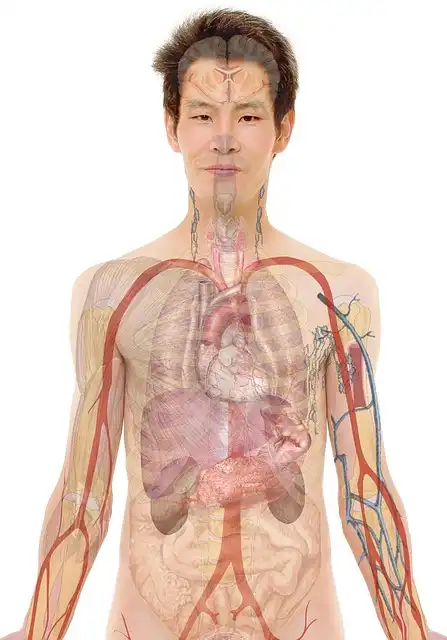
This shows that PDMS is a very appropriate encapsulant for years-long implantation. These understandings will certainly inform and enable the style of advanced chip-scale energetic bioelectronic implants for minimally invasive brain-computer interfaces and persistent neuroscientific research. And based upon the brand-new insights, standards are proposed that may boost the longevity of implantable chips, broadening their applications in the biomedical area.
Mar. 14, 2022– Long-term use implantable electronic medical tools– such as pacemakers and cochlear implants– is obstructed by the body’s reaction to foreign bodies. Currently, in a research study in mice, a team led by …
“Miniaturized neural implants have enormous capacity to transform healthcare, yet their long-lasting security in the body is a major problem,” describes Vasso Giagka, researcher at the Technical University Delft. “Our research study not just recognizes essential obstacles however also offers useful standards to enhance the integrity of these gadgets, bringing us closer to durable and risk-free clinical services.”
Mar. 14, 2022– Long-term use of implantable electronic medical digitalClinical such as pacemakers and cochlear implants– is hampered by hindered body’s reaction to response bodiesInternational
Neural implants are vital in order to research the brain and establish therapies for people with illness like Parkinson’s or clinical depression. Neural implants electrically boost, block, or document signals from neurons or neural networks in the mind. For research study and therapy, and specifically for chronic usage, these neural implants need to be long lasting.
Neural implants contain incorporated circuits (ICs)– typically called chips– developed on silicon. The setting within the body is harsh, which increases worries regarding the durability of implantable silicon ICs. A group of researchers from the Bioelectronics Area led by Dr. Vasiliki (Vasso) Giagka, address this obstacle by studying the degradation mechanisms of silicon ICs in the body and by finishing them with soft PDMS elastomers to form body-fluid obstacles that provide long-term defense to implantable chips.
The researchers assessed the material and electric performance of chips (from 2 various makers, additionally known as shops) over the course of one year with accelerated artificial insemination and in vivo studies. They used bare silicon IC frameworks and integrated them with soft PDMS elastomers to form body-fluid obstacles that use long-term security to implantable chips. The chips used in the research were partly coated in PDMS (polydimethylsiloxane), which is a polymer consisting of silicon. This created 2 areas on the chips, a ‘bare die’ region and a ‘PDMS-coated’ area. Throughout the increased in vitro research the chips were taken in hot seawater and electrically biased (exposed to electrical straight currents). The chips were regularly monitored and results revealed a secure electric performance. This revealed that the chips continued to be functional, also when straight revealed to physical fluids.
Delft College of Modern Technology. Advancements in neural dental implant research boost durability.
Neural implants contain incorporated circuits (ICs)– typically called chips– built on silicon. A group of researchers address this obstacle by examining the deterioration devices of silicon ICs in the body and by coating them with soft PDMS elastomers to form body-fluid barriers that use long-term security to implantable chips.
Copyright 1995-2024 ScienceDaily or by various other events, where indicated. All civil liberties managed by their corresponding owners. Material on this internet site is for information only. It is not meant to give medical or other professional advice. Sights revealed right here do not necessarily mirror those of ScienceDaily, factors or partners. Financial backing for ScienceDaily comes from advertisements and reference programs.
Sep. 25, 2023– To find out more concerning what creates the body to turn down biomedical implants, a group has identified a healthy protein that appears to assist drive this reaction and hopes their discoveries will certainly enhance the style …
Apr. 8, 2020– Releasing light from silicon has actually been the ‘Divine Grail’ in the microelectronics industry for years. Addressing this challenge would transform computer, as chips will come to be quicker than ever. …
Vasso is likewise really delighted by the outcomes of the study. “Our searchings for show that bare-die silicon chips, when very carefully designed, can operate accurately in the body for months. By resolving long-term integrity challenges, we are opening up brand-new doors for miniaturized neural implants and advancing the development of next-generation bioelectronic gadgets in scientific applications.”
Neural implants consist of incorporated circuits (ICs)– generally called chips– developed on silicon. A team of scientists resolve this obstacle by researching the degradation mechanisms of silicon ICs in the body and by finish them with soft PDMS elastomers to create body-fluid obstacles that offer lasting defense to implantable chips. Neural implants include incorporated circuits (ICs)– commonly called chips– constructed on silicon. A team of researchers from the Bioelectronics Area led by Dr. Vasiliki (Vasso) Giagka, address this difficulty by researching the deterioration devices of silicon ICs in the body and by coating them with soft PDMS elastomers to form body-fluid obstacles that provide long-lasting defense to implantable chips. Sep. 25, 2023– To learn even more regarding what triggers the body to turn down biomedical implants, a group has determined a protein that shows up to aid drive this response and hopes their discoveries will boost the style …
Vasso emphasizes the safety role of PDMS. “This job reveals the critical function of silicone encapsulation in protecting implantable incorporated circuits from destruction. By expanding the life expectancy of neural implants, our research opens up pathways to much more durable and reliable modern technologies for brain-computer interfaces and clinical treatments.” Kambiz wholeheartedly concurs with Vasso: “This was a lengthy examination, but ideally results will certainly be useful for numerous.”
Sep. 30, 2021– A group of bioengineers has developed an unique soft and flexible self-powered bioelectronic gadget. The innovation converts body movements– from flexing a joint to refined activities such as a …
1 implantable silicon ICs2 Neural implants
« Multilingualism improves crucial cognitive functions in autistic children, study findsThe 16 best nutritionist-backed protein bars we tested for every diet »
